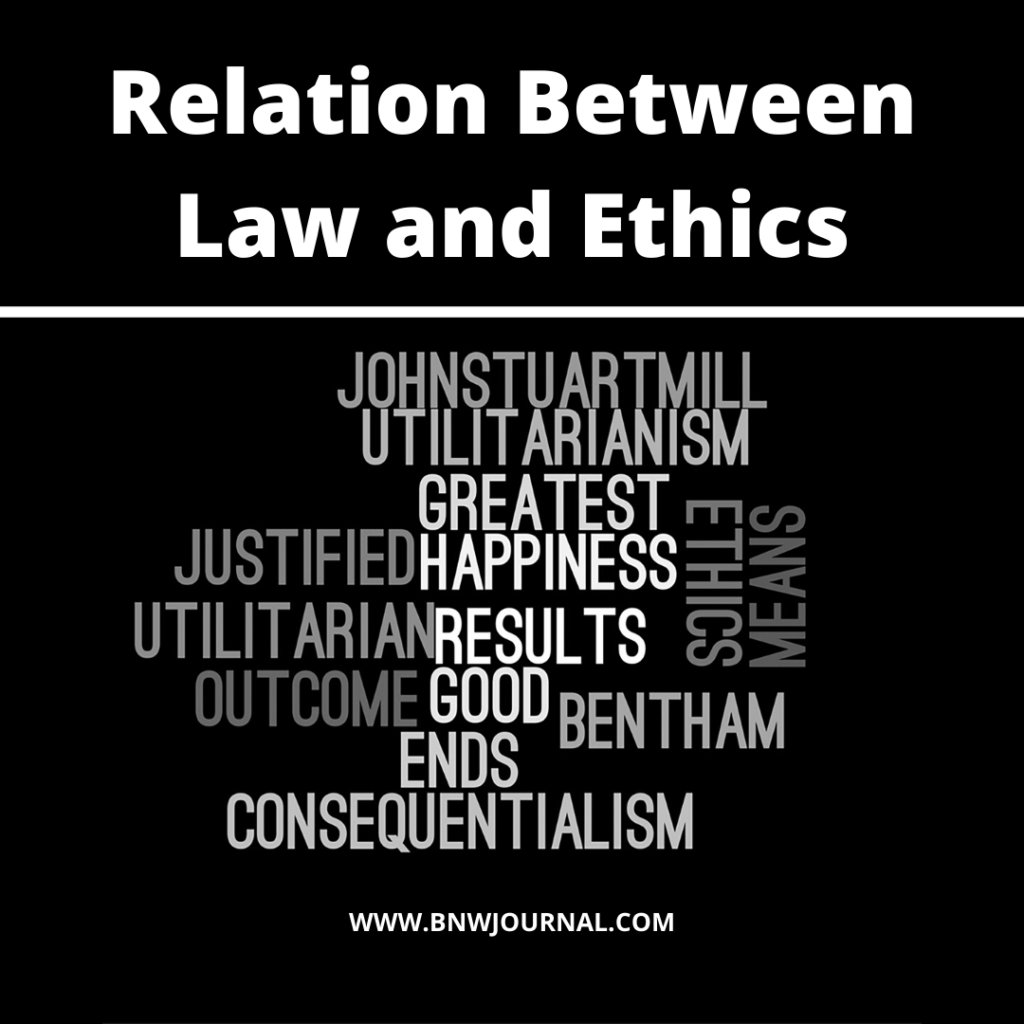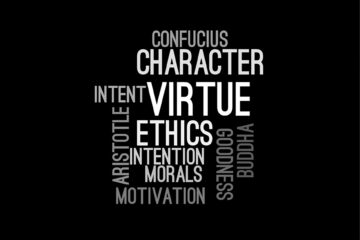![]()
Introduction
Legal Ethics, standards that lead individuals from the lawful calling are relied upon to see in their training. They are an outgrowth of the advancement of the Legal calling itself.

Foundation
Experts of law rose when lawful frameworks turned out to be unreasonably mind-boggling for each one of those influenced by them to completely comprehend and apply the law. Certain people with the necessary capacity aced the law and offered their abilities for recruit. No recommended capabilities existed, and these experts were not dependent upon legitimate controls. The clumsy, corrupt, and unscrupulous charged extreme expenses, neglected to proceed as guaranteed. And occupied with postponing and obstructive strategies in the courts before which they showed up. Activity to forestall such maltreatment was taken by enactment and by legal and other legislative measures. The option to provide legal counsel came to be constrained to the individuals who met endorsed capabilities. Removal from training and criminal punishments were presented for different sorts of unfortunate behavior.
These measures accomplished more than the right maltreatment. They additionally offered acknowledgment to the social significance of the capacities performe by legal counselors. And also recognize the individuals who were able to perform them. An awareness created inside the calling of the requirement for gauges of direct. This turned into the center of legitimate, or expert, morals. Earlier rules, court rules, and other government orders stayed in power alongside the calling’s willful moral norms. Together with negligence activities, they comprised the whole of the restrictions put upon legal advisors as to their expert direct. This example has proceeded to right now.
Composed Code isn’t Fundamental
In numerous nations proficient relationships of legal counselors have try to submit the standards of moral direct to composed structure. Yet a compose code isn’t fundamental. Moral standards may exist by basic understanding just as in the writing and works of the calling. A code, be that as it may, makes morally require standards promptly accessible to the professional (and people in general). In this manner assists with guaranteeing more extensive recognition of them. At the point when such a code exists, it ordinarily contains the two proclamations of general moral standards. And specific guidelines administering explicit issues of expert morals. In any case, no code can predict each moral issue that may emerge in the act of law. Consequently, in numerous purviews codes are enhanced by feelings rendered and distributed by bar affiliation boards of trustees.
Double Responsibility of The Legal Professional Principles of Legal Ethics
Regardless of whether composed or unwritten, direct the lead of lawful practice as well as mirror. The essential suppositions, premises, and techniques for the lawful framework inside which the attorney works. They reflect also the calling’s origination of its job in the organization of equity. In majority rule nations, for example, the United States, Canada, the part conditions of the European Union, and Japan. This origination incorporates the basic suspicion that the regular legal advisor, albeit mainly occupy with the portrayal of private interests, has an extensive open duty too.
Legal Advisor’s condition
For a legal advisor is an official of the court who assumes a basic job in maintaining the uprightness of the legitimate framework. Likewise, a legal advisor must shun strategies. That would overcome the reasonable organization of equity, even while working enthusiastically to propel the interests of a customer. Normally, the interests of customers and society don’t generally agree. The standards of legitimate morals don’t generally show the legal counselor’s commitments in such circumstances.
Should a legal advisor interrogate an unfavorable observer in a manner that sabotages or decimates his declaration when the legal advisor accepts the observer is coming clean? May he conjure rules of proof to reject focuses. That would weigh against his case yet that he considers to be valid or presumably evident? May he exploit the mistakes of an untalented adversary? Would it be a good idea for him to request a jury preliminary. Basically for motivations behind defer when such a preliminary would have no bit of leeway for his customer? These inquiries might be addressed distinctively in legitimate frameworks that work on various premises.
A framework wherein a legal advisor present a customer’s case in the most positive light allow by law. And in which the court must choose the benefits of the case may well create unexpected replies in comparison to those delivered in a framework that doles out a higher need to the legal counselor’s obligation to the state to guarantee appropriate organization of equity.
Territories of Application Conflict of Intrigue
A legal counselor is now and again confront with the subject of whether to speak to at least two customers whose interest’s strife. Aside from his moral commitments, the legitimate frameworks of the world for the most part deny a legal advisor from speaking to a customer whose interests struggle with those of another, except if both assents. In Anglo-American lawful frameworks the restriction has three perspectives.
Restrictions
To begin with, the lawyer isn’t allow to speak to at least two customers simultaneously if, to facilitate the interests of one, he should do without propelling the clashing interests of another. To put it plainly, he can’t be both for and against a customer. Second, he can’t therefore acknowledge work from another to fix what he had before has to achieve. Third, he may not acknowledge resulting work from another on the off chance that it includes the utilization, the presence of utilization, or the conceivable utilization of private data got from his previous customer. Such activities are taboo by law and by legitimate morals.
To outline, a lawyer may not as per normal procedure set up an instrument for both purchaser and dealer. Espeically in which their rights are characterize. He may not set up an instrument or arrange a settlement for a customer; and later acknowledge work from another to vanquish that instrument or settlement. He should not speak to both a driver and his traveler in recouping harms from another gathering accused of careless driving in an impact, since the traveler may have a case against his driver also. He may not speak to at least two litigants in a criminal arraignment if their particular protections are conflicting or, conceivably, in any event, when the body of evidence against one is more grounded than the body of evidence against the other. Similar standards apply regarding the interests of the lawyer that may reduce the full and loyal portrayal of his customers.
For instance, he may not buy a property that he has been held to get for his customer, nor may he attract a will in which he is a recipient. These irreconcilable situation forbiddances are not total. The customer may agree to the portrayal after total honesty of the real or conceivable clash. In any case, even the customer’s assent may not get the job done if open intrigue is regarded to be antagonistically influenced. Troublesome irreconcilable circumstance issues additionally emerge with regards to taxpayer driven organization.
Example from US
In the United States, for instance, it has got regular for legal counselors to pass as often as possible to and fro among open and private work, a circumstance that has empower some of them to utilize their situation in the previous setting to profit their customers and themselves in the last mention. The issues that outcome from this suppos “rotating entryway” have been tend to both in the enactment and rules of expert direct. Endeavors have additionally make to address the circumstance of the rehearsing legal advisor who, as an individual from an assembly, is enroll by customers to help or contradict enactment or to make sure about great choices from managerial offices that are subject to authoritative money related help.
Conclusion
The relation and role of Law and Ethics has been ever-evolving throughout history as humanity witnessed several legal and ethical advancement and still, we have a long way to go on that same path. Yet as of now we stand at an important crossroads for law and ethics which is the result of a sudden increase in technological level in possession of man. What happens now will continue to reflect on legal ethics in the coming years, consequentially we bear a responsibility to make Legal Ethics as strong and righteous as we can as of now.



0 Comments